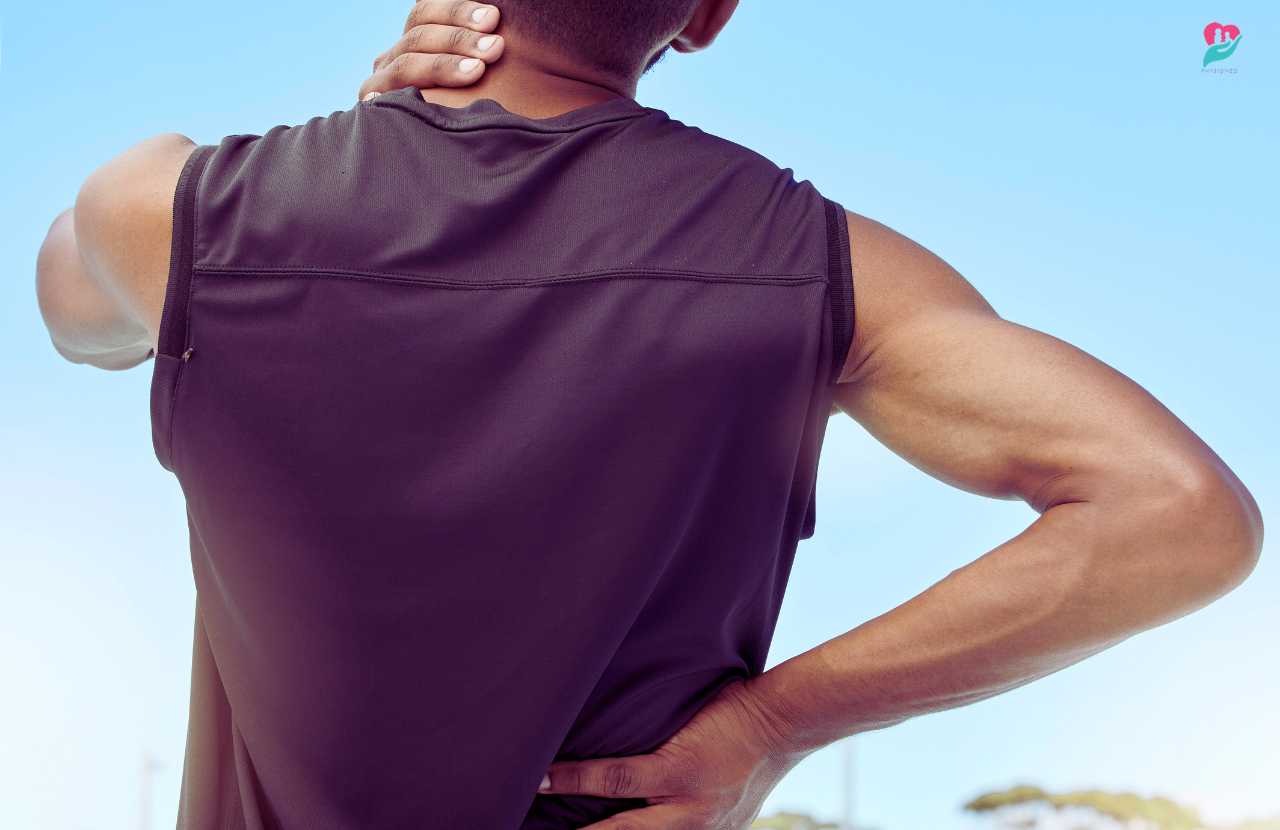
As the question “How can stiff and tight muscles result in back pain?” takes center stage, this article delves into the intricate relationship between muscle tension and back discomfort, providing a comprehensive exploration of the causes, effects, and management of this common ailment.
Muscle stiffness and tightness, often caused by factors such as sedentary lifestyles, injuries, or underlying medical conditions, can significantly impact the functionality and flexibility of the back. This can lead to muscle imbalances, poor posture, and chronic pain if left untreated.
How Can Stiff and Tight Muscles Result in Back Pain?

Back pain is a common problem that can affect people of all ages. While there are many different causes of back pain, one of the most common is muscle stiffness and tightness.
In related news, a new study has shed light on the importance of maintaining strong back muscles. Researchers found that individuals with stronger back muscles had a lower risk of developing lower back pain and other musculoskeletal issues. To learn more about the benefits of back muscle strengthening, refer to the article back muscles .
When muscles are stiff and tight, they can put pressure on the nerves and blood vessels in the back, which can lead to pain. In addition, stiff and tight muscles can also cause muscle imbalances, which can lead to further pain and discomfort.
As Mother’s Day approaches, heartfelt greetings and well wishes are being shared across the globe. For those seeking inspiration for their Mother’s Day messages, happy mother’s day greetings offers a collection of thoughtful and heartwarming sentiments.
Muscle Tension and Back Pain, How can stiff and tight muscles result in back pain?
There are a number of different muscles that, when tight, can cause back pain. Some of the most common include:
- The erector spinae muscles, which run along the spine
- The quadratus lumborum muscles, which are located on either side of the spine
- The piriformis muscle, which is located deep in the buttocks
- The hamstrings, which are located on the back of the thighs
- The calf muscles, which are located on the back of the lower legs
When these muscles are tight, they can pull on the spine and pelvis, which can lead to back pain.
There is a strong correlation between muscle stiffness and back pain. One study found that people with chronic back pain had significantly higher levels of muscle stiffness than people without back pain.
In a poignant tribute, happy heavenly mother’s day commemorates the memory of mothers who have passed away. Through personal stories and words of remembrance, this article provides solace and comfort to those grieving the loss of their beloved mothers.
Causes of Muscle Stiffness and Tightness
There are a number of different factors that can lead to muscle stiffness and tightness. Some of the most common include:
- Inactivity:When muscles are not used regularly, they can become weak and stiff.
- Overuse:Using muscles too much can also lead to stiffness and tightness.
- Injury:Muscle injuries can also lead to stiffness and tightness.
- Age:As we age, our muscles naturally become stiffer and tighter.
- Certain medical conditions:Some medical conditions, such as arthritis and fibromyalgia, can also lead to muscle stiffness and tightness.
Muscle stiffness and tightness can develop over time. If you do not address the underlying cause of your muscle stiffness and tightness, it is likely to get worse over time.
Impact of Muscle Stiffness and Tightness on Back Function
Stiff and tight muscles can have a significant impact on back function. They can:
- Reduce range of motion:Stiff and tight muscles can make it difficult to move your back in all directions.
- Cause muscle imbalances:Stiff and tight muscles can lead to muscle imbalances, which can put strain on your back and lead to pain.
- Contribute to poor posture:Stiff and tight muscles can contribute to poor posture, which can also lead to back pain.
- Increase the risk of injury:Stiff and tight muscles are more likely to be injured.
Chronic muscle stiffness and tightness can have a significant impact on your overall health and well-being. It can make it difficult to perform everyday activities, and it can also lead to more serious health problems.
End of Discussion: How Can Stiff And Tight Muscles Result In Back Pain?

Understanding the causes and consequences of muscle stiffness and tightness is crucial for maintaining back health. By implementing preventive measures, such as regular stretching, exercise, and proper posture, individuals can reduce their risk of developing back pain and improve their overall well-being.
Key Questions Answered
Can muscle stiffness and tightness cause chronic back pain?
Those looking to reduce lower back fat may find relief through targeted exercises. Experts recommend focusing on strengthening the back muscles, as they play a crucial role in supporting the spine and reducing excess fat. For those seeking a comprehensive guide to lower back exercises, exercises for lower back fat provides detailed instructions and tips.
Yes, chronic muscle stiffness and tightness can lead to persistent back pain if left untreated.
What are some common causes of muscle stiffness and tightness?
Sedentary lifestyles, injuries, poor posture, and certain medical conditions can all contribute to muscle stiffness and tightness.
How can I prevent muscle stiffness and tightness?
Regular stretching, exercise, and maintaining good posture are effective ways to prevent muscle stiffness and tightness.





